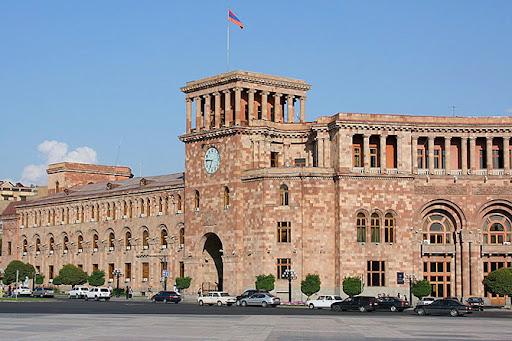Yerevan must grasp that Armenia's sovereignty and future are at stake Kazakh pundit assesses peace chances in South Caucasus
In a Caliber.Az interview, Kazakh political scientist and public figure Arman Shuraev discusses Kazakhstan's mediator role and the prospects for sustainable peace between Baku and Yerevan, given Armenia's volatile behaviour.
- How do you assess Kazakhstan's initiative to provide a negotiating platform for the Foreign Ministers of Azerbaijan and Armenia in Almaty?
- I believe that the recent initiative by Kazakhstan was the result of meticulous work with both sides of the conflict. Remarkably, President Tokayev's proposal was accepted in Baku and Yerevan. It is worth noting that Kazakhstan is a neutral country and Azerbaijan is considered our strategic ally, and a Turkic-speaking country with which we share strong neighbourly and fraternal ties. Kazakhstan has always been a reliable platform for regional and global negotiations, which makes it a trustworthy mediator that contributes to the resolution of various conflicts.
- Will the parties be able to advance on a peaceful regional agenda in Almaty?
- I believe the parties can progress towards the peace agenda proposed by Baku, given the current regional power dynamics. I am sure that the Armenian side has few options and opportunities for manoeuvres, especially since the peace agenda proposed by Baku is not humiliating or degrading. On the contrary, it makes it possible to finally prioritise and completely disavow any preconditions for this conflict never to flare up again.
- How do you assess the current internal political situation in Armenia, more precisely the protests of the opposition and the Armenian Church?
- The internal political situation in Armenia remains highly volatile, particularly in the wake of consecutive setbacks. It's plausible that the situation may further deteriorate, with the potential for various scenarios, including a coup d'état. The Armenian Church has traditionally wielded influence in political affairs, yet both the clergy and the opposition must recognize the irreversible course of history. Attempts to reclaim lost territories, such as Karabakh, whether through military or other means, are futile and detrimental to Armenia's stability and sovereignty. Any pursuit of vengeance, be it by the opposition, the Church, or the current authorities, would spell disaster for Armenia as a whole, endangering its very existence as a nation-state. Armenians must acknowledge that Yerevan, historically known as Iravan, is an integral part of Azerbaijan's ancient heritage.

- Could there be attempts of interference by the Armenian diasporas in the USA and France in the internal political situation in Armenia?
- The substantial Armenian diasporas in France and the United States wield considerable influence on the political landscape of these countries, raising the possibility of interference in Armenia's internal affairs. However, it's important to note that it would be counterproductive for French and American authorities to actively destabilize Armenia's internal political situation, particularly when Prime Minister Pashinyan, who demonstrates loyalty to both Washington and Paris, remains in power.
- Do you foresee Armenia's definitive pivot towards the West?
- While Armenia may aspire to align more closely with Western nations, its geographical realities, bordered by countries with complex relations, pose significant challenges to such a pivot. Maintaining amicable relations with Azerbaijan, Türkiye, and Russia is imperative for Armenia's stability and security. Ultimately, Armenia must acknowledge its current regional context and chart its future course accordingly. Yerevan must recognize that Armenia's sovereignty and future are at stake.








